The United Arab Emirates begins construction of a large pipeline to transport desalinated water from Egypt to the southern Gaza Strip.

The United Arab Emirates has begun building a massive pipeline to transport desalinated water from Egypt to southern Gaza , according to multiple sources.
Technical teams sent by the United Arab Emirates have begun transporting the equipment needed for the project, the official Emirati news agency WAM reported Wednesday.
The project is expected to connect a desalination plant in Egypt to the Al Mawasi area on the Gaza coast and could supply water to some 600,000 people daily, said Cogat, an Israeli defense ministry agency responsible for civil affairs in the Palestinian territories.
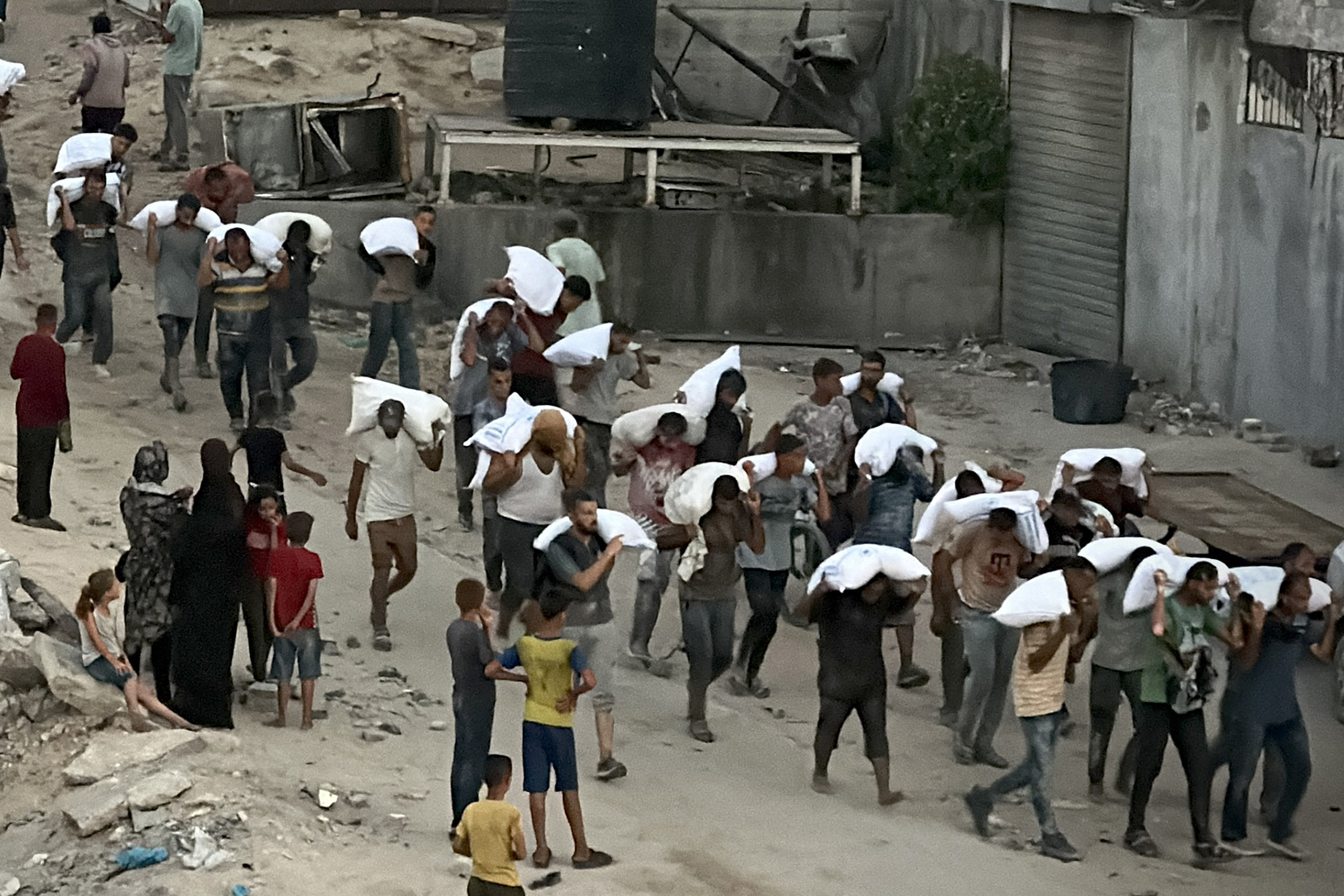
Men walk carrying sacks of flour stolen from a truck in Khan Yunis. Photo: AFP
WAM said the UAE has launched "several initiatives to drill and rehabilitate drinking water wells."
Access to clean drinking water is extremely limited throughout Gaza, forcing its 2.4 million residents to rely on salt water, often unsafe, or irregular aid deliveries.
More than 80% of Gaza's water infrastructure has been damaged during the war between Israel and Hamas, according to estimates by the Palestinian Water Authority.
Following the Israeli water cuts, most Gazans rely on contaminated wells or sporadic water deliveries from NGOs, hampered by limited access to aid.
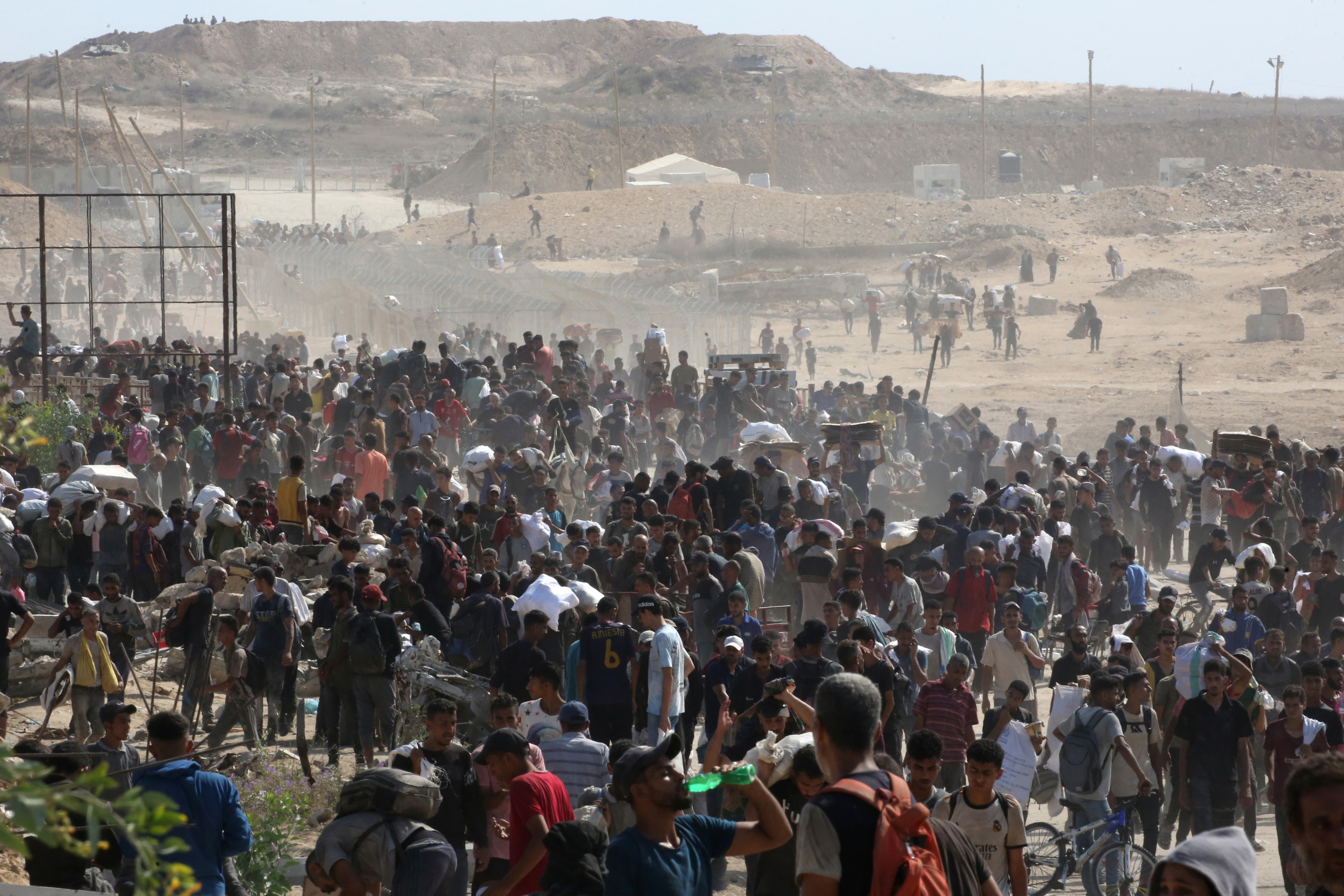
Palestinians receive humanitarian aid at a distribution point in Gaza. Photo: AFP
"The water crisis in Gaza continues to deteriorate rapidly amid severe fuel shortages, extensive damage to infrastructure, and inaccessible water sources," said the UN Office for the Coordination of Humanitarian Affairs (OCHA).
The Deir al-Balah desalination plant in central Gaza resumed full operations over the weekend after being reconnected to the Israeli power grid for the first time since spring.
Humanitarian organizations have been warning for months of an impending public health catastrophe, particularly in southern Gaza, where hundreds of thousands of displaced people are sheltering.
The United Arab Emirates has begun building a large pipeline to transport desalinated water from Egypt to southern Gaza, according to multiple sources.
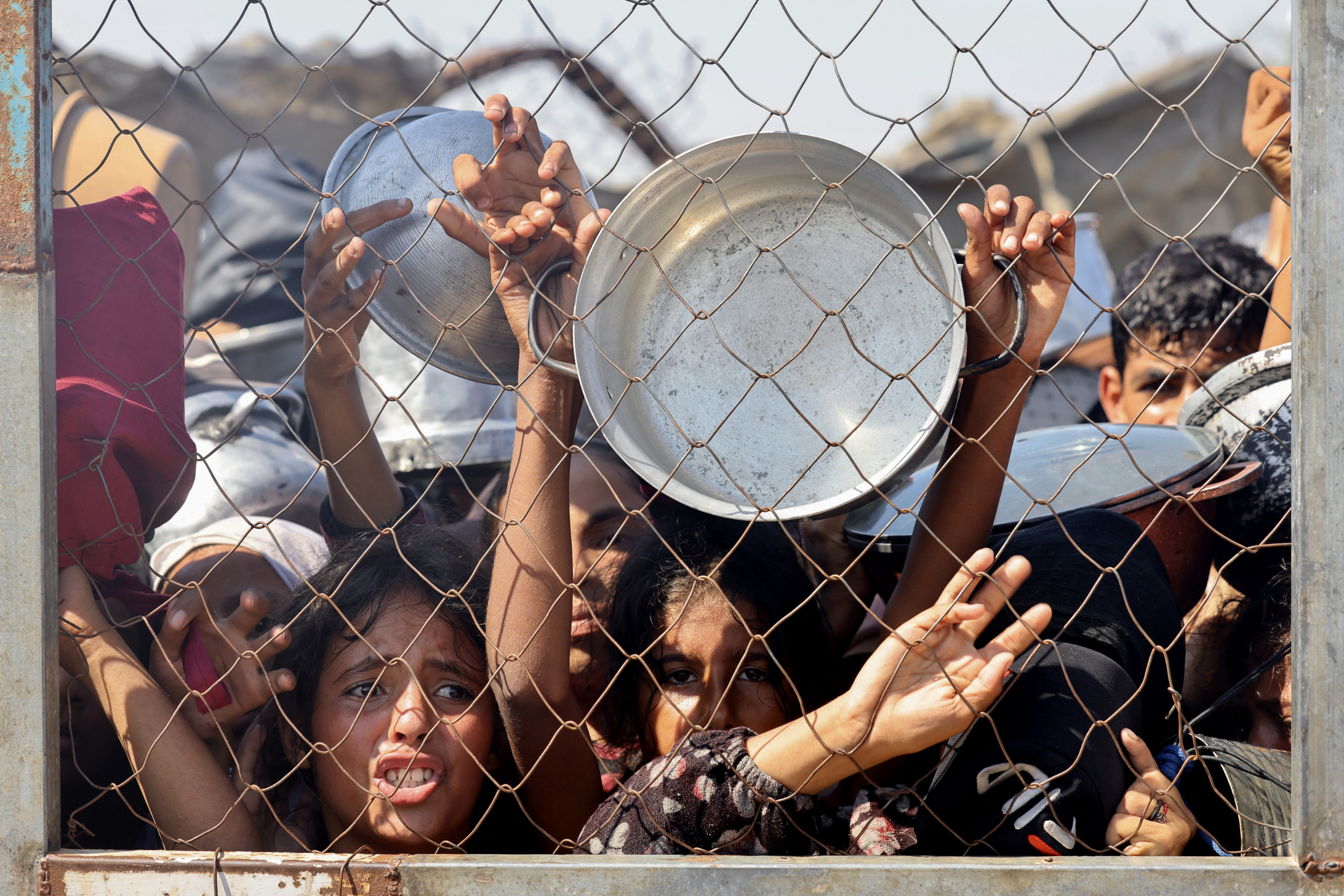
Palestinians, mostly children, push to receive a meal in Khan Yunis, Gaza. Photo: AFP
The Jordanian and United Arab Emirates (UAE) armed forces carried out new humanitarian aid airdrops to the Gaza Strip on Wednesday, totaling 16 tons of food and baby milk, for the fourth consecutive day, in an effort to alleviate the famine caused by the Israeli blockade.
"Some 16 tons of food and baby milk have been dropped at different points in the Strip," the Jordanian Army said in a statement, adding that the total number dropped with this operation amounts to 73 tons of basic supplies.
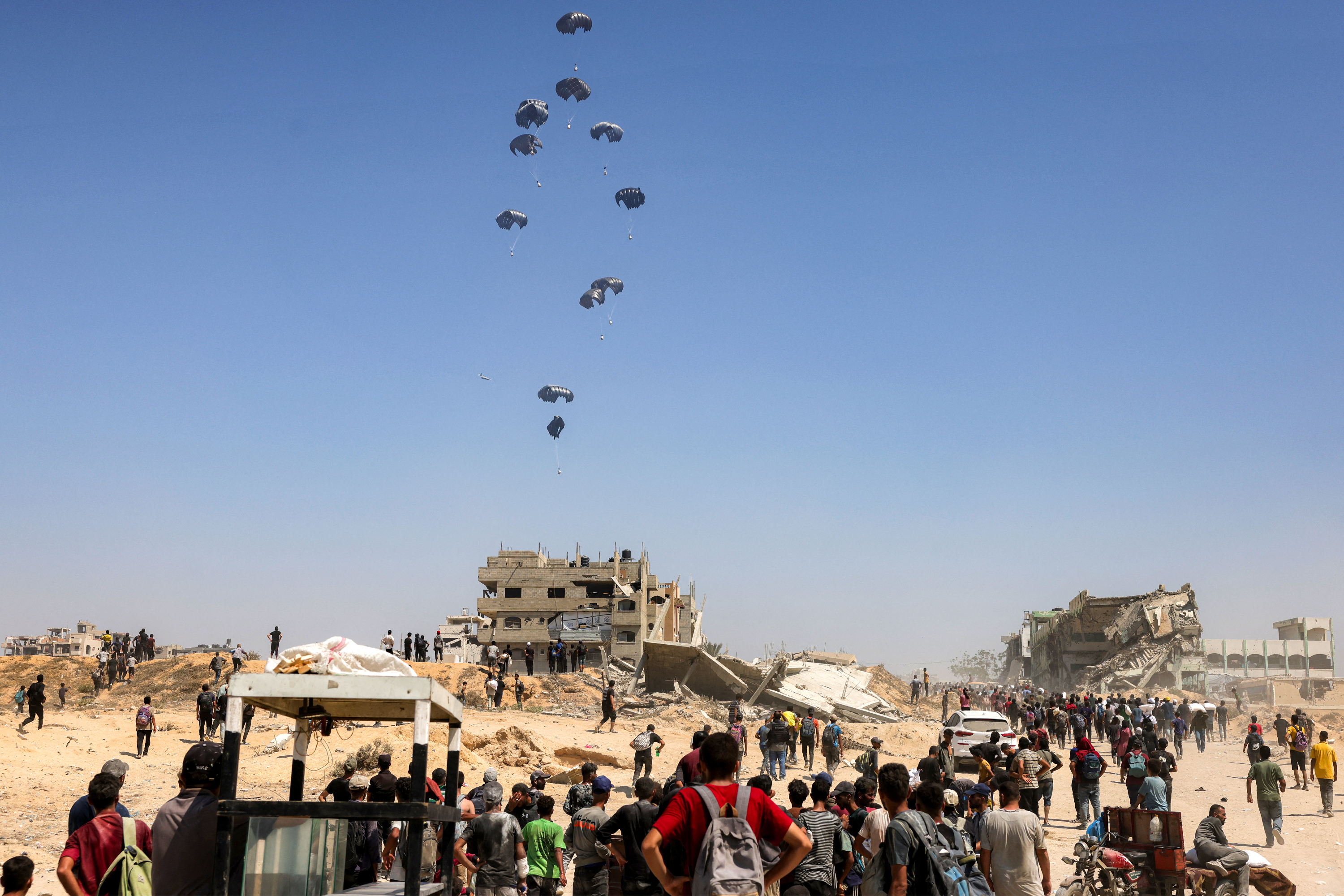
Deployment of humanitarian aid by air in the Gaza Strip Photo: AFP
In the statement, they reiterated that this action is part of the joint efforts of Jordan and the UAE "in support of the Palestinians amid the circumstances facing the Strip."
In total, the Jordanian Army has carried out 130 launches using C-130 aircraft , in addition to 270 in collaboration with other countries.
However, airdrops, criticized by several humanitarian organizations, are often unsuccessful, as the packages often land in areas difficult for the population to access, such as at sea or in combat zones.
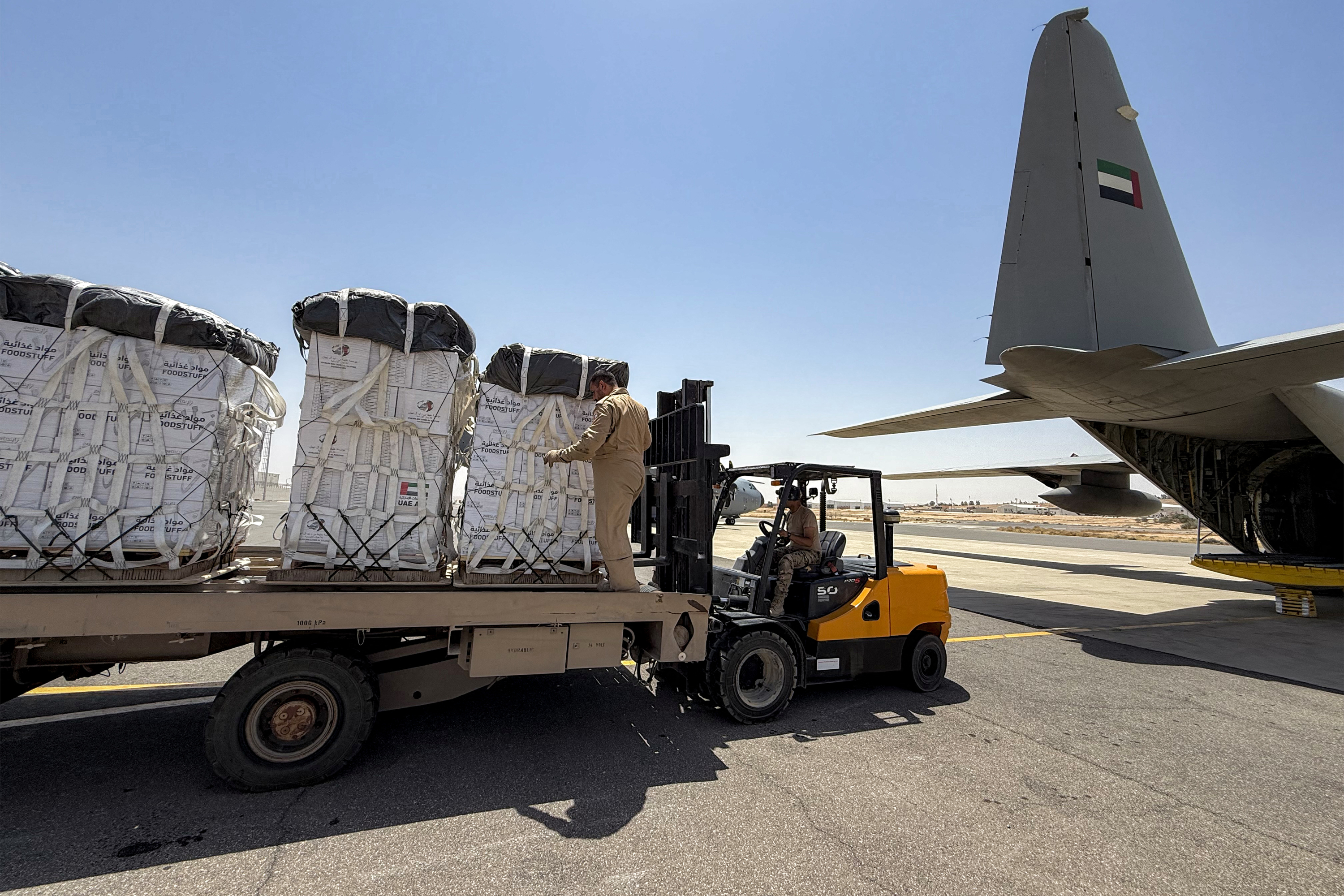
Deployment of humanitarian aid by air in the Gaza Strip Photo: AFP
Furthermore, they are not an effective way to deliver supplies to the Strip given the limited capacity of operations, while humanitarian agencies insist that the necessary course of action is to open border crossings to allow aid to enter, rather than airdropping it.
This launch comes after the Gaza Strip's Ministry of Health recorded the deaths of four more people from malnutrition , bringing the total number of famine-related deaths to 154, including 89 children.
In July 2025, more than 320,000 children—the entire population under five years of age in the Gaza Strip—were at risk of acute malnutrition, and thousands of them suffered from severe acute malnutrition, the deadliest form of malnutrition, according to data from the World Food Programme (WFP).
eltiempo





